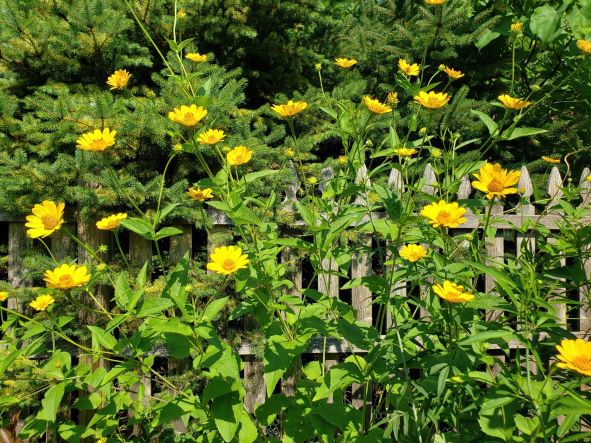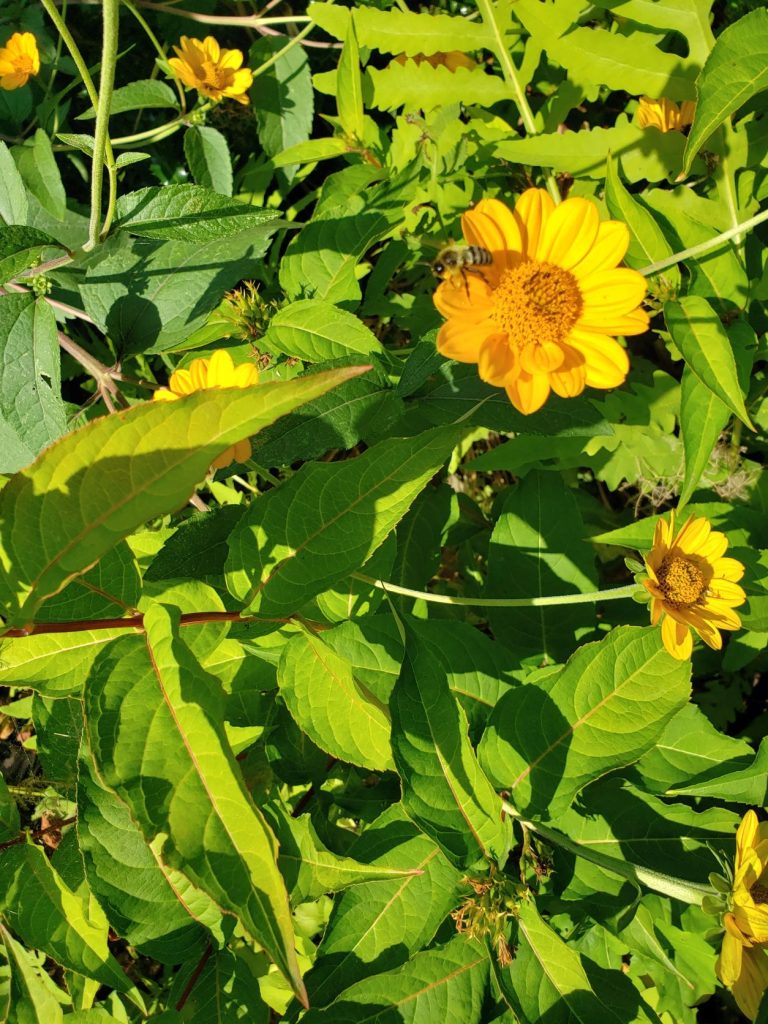A quintessential symbol of summer and carefree days, when gardeners think about sunflowers many quickly picture our annual sunflowers, those tall denizens that stand statuesquely over a fence and are ubiquitous in all kinds of artwork. These do a great job of feeding birds by providing large, edible, sunflower seeds and certainly garner one’s admiration.

Standing not as stiff and looking fresh over a longer period of time are our perennial sunflowers-plant them once and you won’t have to start them from seed next year! They, too, bloom in sunny golden shades and include different species with varying requirements so you can find what works for you.
For example, swamp sunflower (Helianthus angustifolius) grows
from 1 1/2 to 5 1/2 feet tall and prefers swamps and moist, sunny areas. Others also grow from 1 1/2 to 5 1/2 feet tall, including ten-petaled sunflower (Helianthus decapetalus) which prefers average to moist soils. Woodland sunflower (Helianthus divaricatus) does best in dry to medium soils, tolerates some shade, and can be found along roadsides. Oxeye sunflower (heliopsis helianthoides) also prefers dry to medium soil and offers a long bloom time.
Sunflowers are very important to native bees because many of them specialize on the pollen of sunflowers. When it comes to nectar, bees are generalists and can consume the nectar of any flower that produces it. But this is different regarding pollen, which is used to raise their young by supplying them with protein and other nutrients. Although many bees are generalists and can use any pollen, others are specialists and can only consume the pollen of a specific family or genus of plants. For example, squash bees can only use the pollen of pumpkins, zucchini, butternut squash, and other cucurbits and are the most effective pollinators of these crops. Likewise, a number of native bees specialize on the pollen of sunflowers in
the genus Helianthus. In fact, sunflowers are second only to goldenrods (genus Solidago) when it comes to the number of native bees that specialize on them. Therefore, our native sunflowers are extremely important in supplying pollen for specialist bees which could not live without it. Note that honeybees are not native to North America and that New Jersey has 400 native bee species, of which 27% are pollen specialists!
As you create your garden paradise, include some of our beautiful, perennial native sunflowers and help our bees raise their babies with protein from sunflower pollen!

